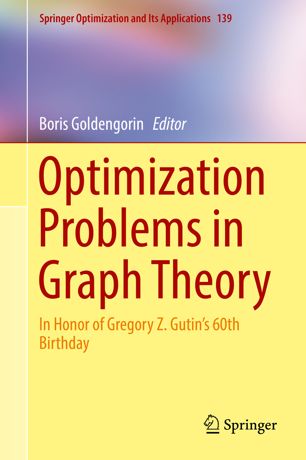

Most ebook files are in PDF format, so you can easily read them using various software such as Foxit Reader or directly on the Google Chrome browser.
Some ebook files are released by publishers in other formats such as .awz, .mobi, .epub, .fb2, etc. You may need to install specific software to read these formats on mobile/PC, such as Calibre.
Please read the tutorial at this link: https://ebookbell.com/faq
We offer FREE conversion to the popular formats you request; however, this may take some time. Therefore, right after payment, please email us, and we will try to provide the service as quickly as possible.
For some exceptional file formats or broken links (if any), please refrain from opening any disputes. Instead, email us first, and we will try to assist within a maximum of 6 hours.
EbookBell Team

4.0
46 reviewsThis book presents open optimization problems in graph theory and networks. Each chapter reflects developments in theory and applications based on Gregory Gutin’s fundamental contributions to advanced methods and techniques in combinatorial optimization.
Researchers, students, and engineers in computer science, big data, applied mathematics, operations research, algorithm design, artificial intelligence, software engineering, data analysis, industrial and systems engineering will benefit from the state-of-the-art results presented in modern graph theory and its applications to the design of efficient algorithms for optimization problems.
Topics covered in this work include:
· Algorithmic aspects of problems with disjoint cycles in graphs· Graphs where maximal cliques and stable sets intersect
· The maximum independent set problem with special classes
· A general technique for heuristic algorithms for optimization problems
· The network design problem with cut constraints
· Algorithms for computing the frustration index of a signed graph
· A heuristic approach for studying the patrol problem on a graph
· Minimum possible sum and product of the proper connection number· Structural and algorithmic results on branchings in digraphs
· Improved upper bounds for Korkel--Ghosh benchmark SPLP instances